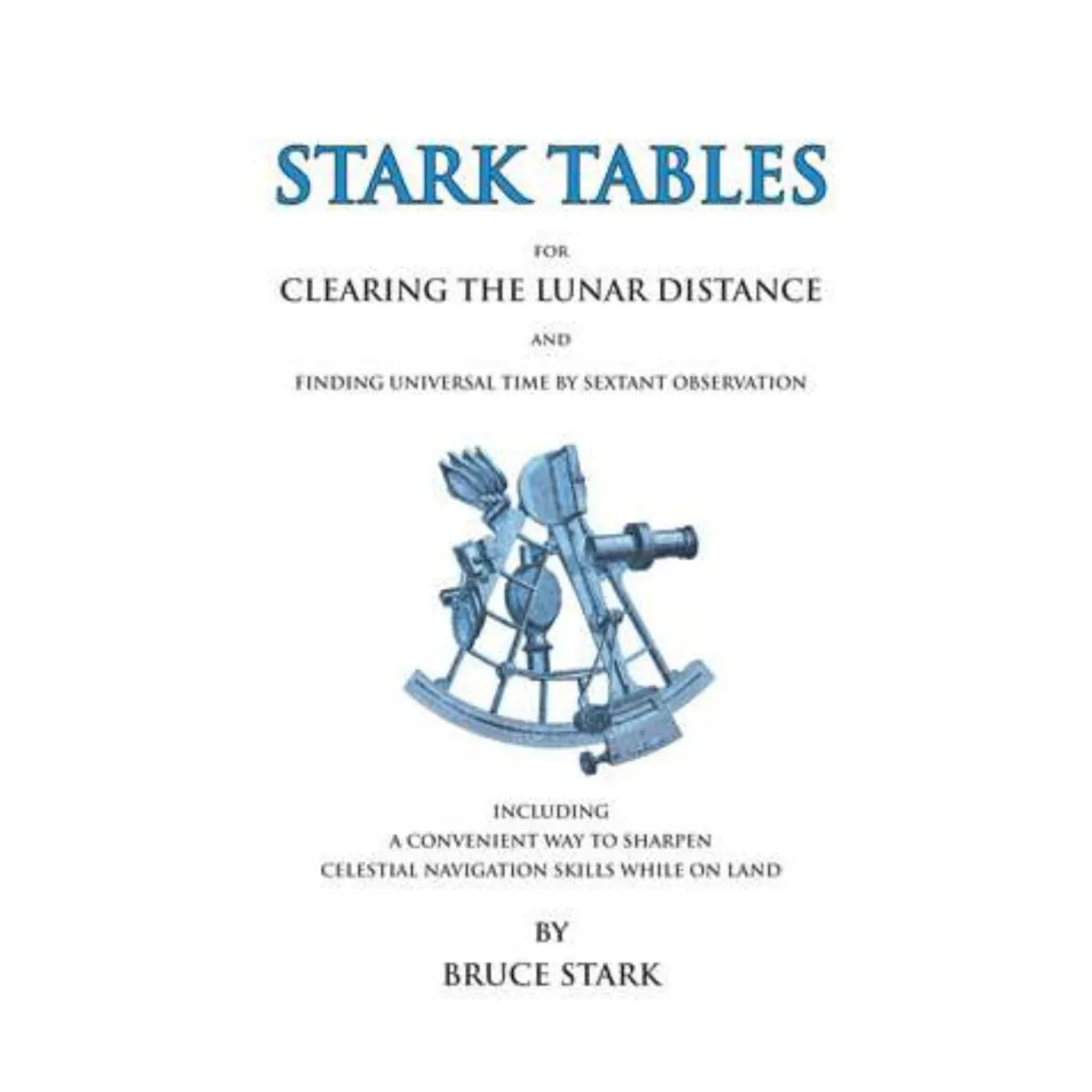In this technique, the sextant is used to measure the angular (diagonal) distance between the moon and another celestial body. Since this distance slowly changes as the moon moves eastward through the stars, it can be used to find the time of day that is needed to complete the longitude determination. The process of finding longitude from lunar distance, however, requires special tables that have not been published in the Nautical Almanac or other sources since the early 1900s. Although software solutions have been available, most advanced celestial navigators are very grateful to navigation historian Bruce Stark for creating these printed tables dedicated to this task. They have been used and tested by mariners for more than 15 years and are praised by experts for their ingenuity and ease of use in solving this complex navigation exercise-which all agree is the hallmark of an expert celestial navigator.
With The Stark Tables in your nav station, you no longer have to fear losing power to your electronic navigation aids, nor are you dependent on accurate time from any official broadcast. Besides their practical use in back up navigation, historians have used these tables for years to interpret the logbooks of Lewis and Clark, David Thompson, James Cook, Matthew Flinders, George Vancouver, Nathaniel Bowditch, and other notable explorers and sea captains. "It is remarkable in this day when the very survival of celestial navigation seems in question, that an individual should suddenly appear on the scene and present to the world such a brilliant piece of work. Stark has rendered a great service to the celestial navigation community" - Robert Eno, The Navigator's Newsletter "Captain Cook would have relished using these tables, had they been available to him then" - George Huxtable, FRIN

 Cart(
Cart(










